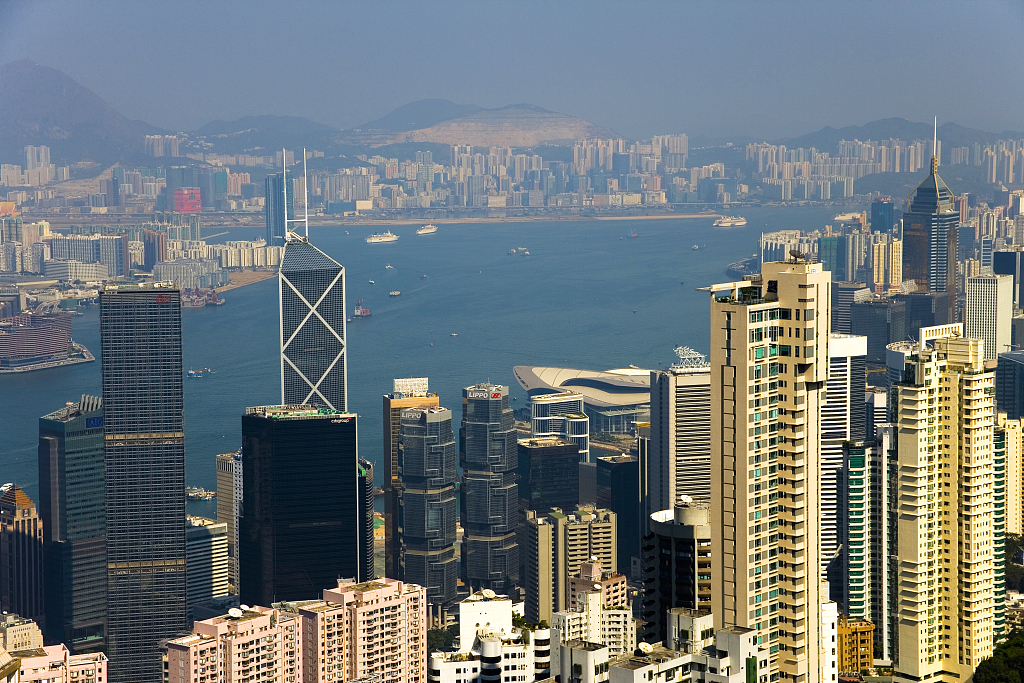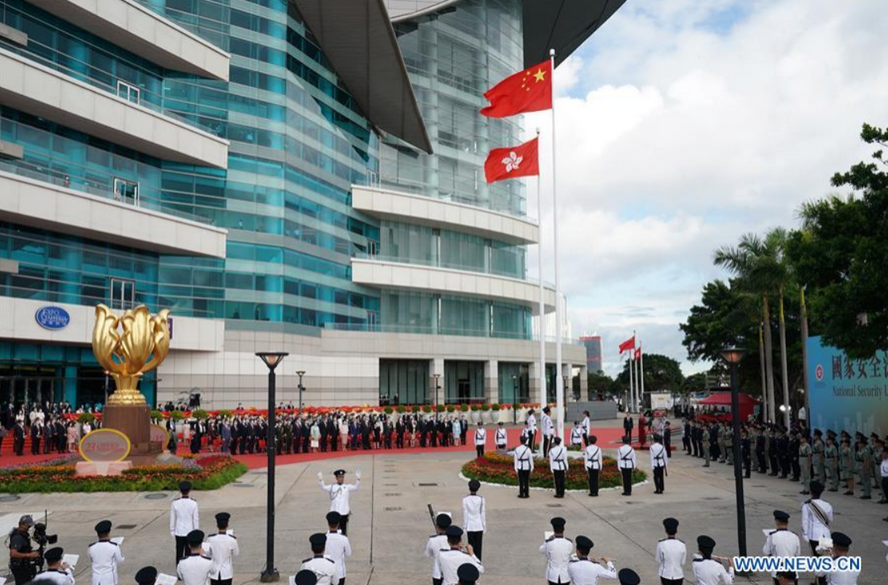
Hong Kong Court of Final Appeal. /GovHK
Hong Kong Court of Final Appeal. /GovHK
In a move that marks yet another escalation of tensions with China, the United States last week suspended its extradition treaty with the Hong Kong Special Administrative Region (HKSAR).
The extradition treaty, struck between the U.S. and the HKSAR in 1998, provides legal basis for the surrender of fugitives who have committed crimes in either jurisdiction to the other. With the pause on this bilateral agreement, experts say it drastically undercuts cooperation in the judicial area.
Having a treaty means the signing parties are under obligation to consider an extradition request, and the due process usually only involves the judicial branches of both jurisdictions, Huang Jin, president of the Chinese Society of International Law, told CGTN.
While extraditions are technically operable between jurisdictions that don't have an existing treaty in place, the lack of one means the processes of arranging extraditions are subject to barriers, and therefore could not guarantee legitimate transfers of fugitives who have made serious offenses such as murder, rape, and drug trafficking.
"Without this agreement, making extradition requests may have to go through diplomatic channels," Huang continued. "It would be arranged in a case-by-case scenario, with each case involving lengthy negotiations between senior government officials, which makes the whole process much more inconvenient."
Cooperation on extradition between the United States and the HKSAR has been extensive over the years. Latest data from the U.S. Marshals Service shows that the HKSAR has made 47 extraditions to the United States between 2003 and 2012, ranking 18th among 137 countries and regions in that period.

Police officer moves a handcuffed suspect. /VCG
Police officer moves a handcuffed suspect. /VCG
According to the South China Morning Post, extradition of fugitives from the U.S. once helped the HKSAR government secure the apprehension of a man implicated in deception cases where 1.96 million U.S. dollars were involved. In 2002, Hong Kong officers' arrest and subsequent surrender of a murder suspect wanted in the U.S. also won commendation by their counterparts in San Francisco, the newspaper reported.
The U.S. suspension of the treaty followed similar moves by Australia, Canada, New Zealand, Germany, France and Britain, which are among the 20 countries that have signed the agreement with the HKSAR. China, on its part, denounced the moves for the resulting damage on the basis of judicial cooperation.
In an article replete with criticisms of the Trump administration, Yonden Lhatoo, a Hong Kong columnist, wrote that Washington's move to suspend the treaty is effectively encouraging rapists and murderers to find shelter in the HKSAR.
Given the nature of reciprocity underlined in the treaty, these suspensions not only have the potential of turning the city into a safe haven for criminals, but also increase the likelihood of offenders who have committed crimes in the special administrative region fleeing to these countries.
"In the world we are living in today, crimes have no border and therefore we see countries having extensive cooperation on that … In the end I think it works both ways," Colin Cohen, a Hong Kong-based lawyer experienced in dealing with extradition cases, told SCMP.

An aerial view of the HKSAR. /VCG
An aerial view of the HKSAR. /VCG
On top of that, ceasing commitment to the treaty also risks the complete break of cooperation on extradition, even though it is still technically achievable.
Since it was these countries that unilaterally withdrew from the agreement, it is very likely that the HKSAR government will not consider any future extradition requests, Huang said. "If they want to arrange an extradition, they will have to renegotiate a treaty with Hong Kong."
Suspending the treaty with the special administrative region will also shut the door for such cooperation with Beijing. There has been precedent where the treaty was used by China to assist other countries' global manhunt. In 2002, Beijing handed over to the U.S. two murder suspects of a notorious massacre in Boston via the HKSAR, an extradition achieved on the basis of the HKSAR-U.S. extradition agreement due to the lack of one between China and the U.S.
Western governments' suspensions of the treaty were made weeks after China enacted the Hong Kong National Security Law. They considered this legislation an "erosion of freedoms in the HKSAR," and halting the treaty was one of their latest moves to protest the law.

A flag-raising ceremony is held by the HKSAR government to celebrate the 23rd anniversary of Hong Kong's return to China at the Golden Bauhinia Square in the HKSAR, China, July 1, 2020. /Xinhua
A flag-raising ceremony is held by the HKSAR government to celebrate the 23rd anniversary of Hong Kong's return to China at the Golden Bauhinia Square in the HKSAR, China, July 1, 2020. /Xinhua
"Although they had every right to halt the extradition agreements, citing opposition to the national security law as the reason to do so was a gross attempt to intervene in China's internal affairs," Huang said.
Since the national security law was enacted, there have been concerns that individuals who have breached the law in these countries may be subject to arrest, but such concerns seem to be unwarranted.
The decision on whether to accept an extradition request generally takes into consideration the political aspect of an individual case, Huang explained. "Most governments don't consider extradition requests of political offenders."
In the same light, some of these suspended treaties also have provisions that accord the requested party the rights to refuse extradition requests containing a political character. In the case of the U.S.-Hong Kong Extradition Treaty, it stipulates that the agreement "excepts political offenses from the obligation to surrender."